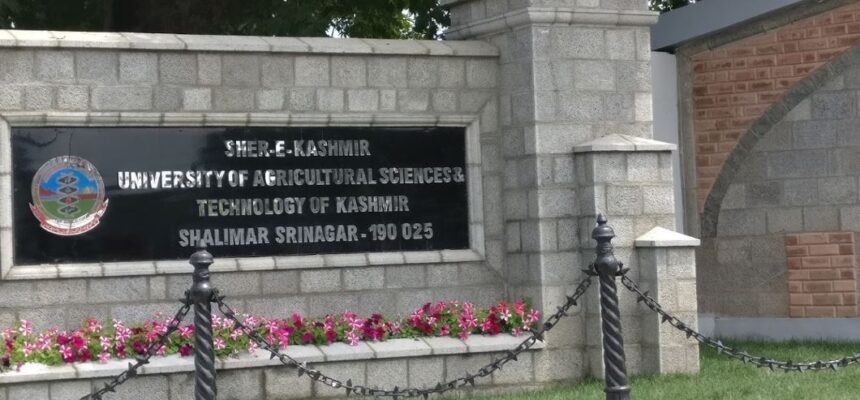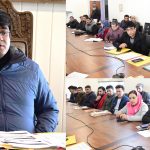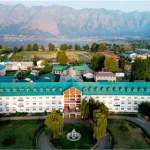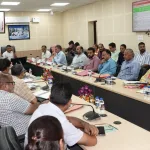Srinagar, Feb 13: The ICAR-sponsored ten-day short training course on “Recent Advances in Drought Stress Management of Temperate Crops”—Present Status and Future Prospects—Tuesday concluded at the division of Basic Sciences and Humanities, Faculty of Horticulture, SKUAST-Kashmir.
The programme, held from February 4 to February 13 brought together leading scientists, researchers, academicians, and professionals from across the country to discuss innovative approaches to drought stress management and climate resilience in temperate crops.
The inaugural session was graced by Prof. Arshad Mughal, Associate Director Research, who attended as the chief guest. In his address, he highlighted the growing challenges posed by drought in temperate regions, including Kashmir, and underscored the critical need for advanced research, technology-driven solutions, and policy interventions to mitigate drought stress for sustainable crop production.
The training programme featured interactive sessions, hands-on demonstrations and expert lectures delivered by renowned scientists and subject matter specialists from prestigious institutions across India. Key topics covered included—drought tolerance mechanisms in crops, physiological and molecular responses to water stress, innovative agronomic practices for drought mitigation, biotechnological approaches to enhance drought resilience, latest advancements in remote sensing and AI-based crop modelling and precision agriculture techniques for improving drought adaptability
Participants had the unique opportunity to engage with leading experts in the field, gaining deeper insights into emerging strategies to combat drought stress in temperate crops.
The valedictory session was presided over by Vice Chancellor of SKUAST-Kashmir, Prof. Nazir Ahmad Ganai, who emphasised the urgent need for climate-smart and future-ready crops capable of withstanding extreme environmental conditions. Addressing young researchers, he encouraged a multidisciplinary approach in tackling climate challenges and urged them to leverage emerging technologies for sustainable agriculture and food security.
Prof. Javeed I. A. Bhat, Head, Division of Basic Sciences and Humanities, welcomed the Honourable Vice Chancellor to the closing ceremony, while Prof. F. A. Khan, Course Director, provided a comprehensive briefing on the training programme. Prof. Shabir Ahmad Wani, Dean, Faculty of Horticulture, acknowledged the proactive shift among farmers towards water-efficient farming practices in Kashmir to combat drought stress conditions. He stressed the importance of continued research and farmer awareness to ensure long-term agricultural sustainability in the region.
The programme concluded with a vote of thanks, marking the successful completion of an enriching and impactful training course. The initiative is expected to contribute significantly to the development of drought-resilient agricultural strategies for temperate crops, ensuring a sustainable future for farmers in drought-prone regions.








